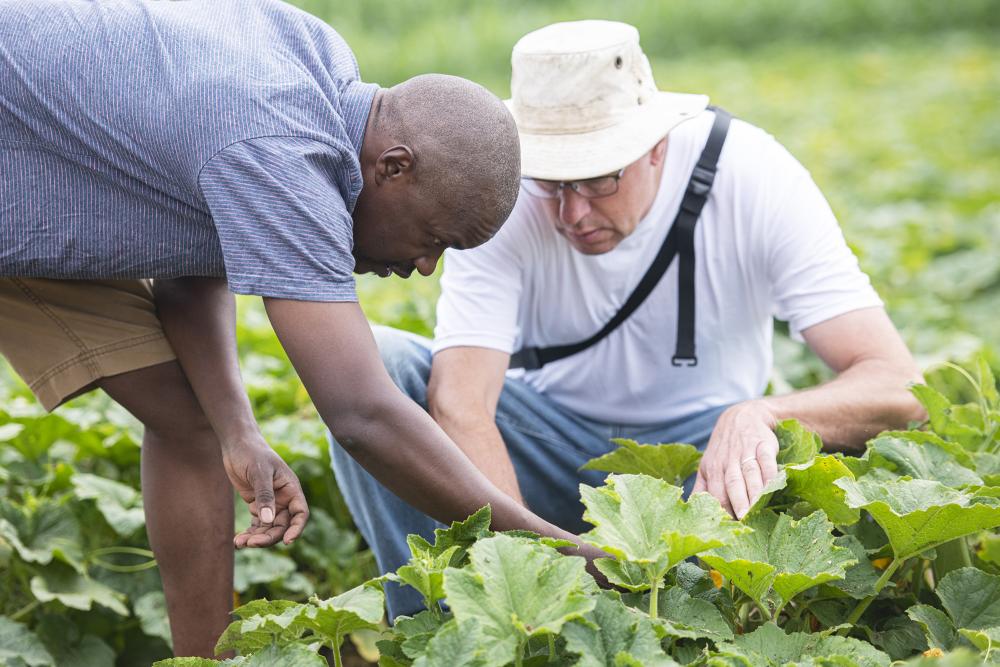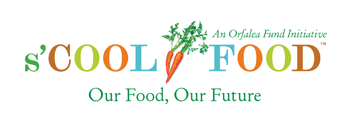Partnering Farms
The phrase “No farms, no food” couldn’t ring truer, especially when it comes to transforming the meals served in schools. As school food reform gains momentum, it’s the partnership with local farmers that’s making the biggest difference, ensuring fresh, nutritious, and sustainable meals reach students daily. These local heroes are helping us reshape school cafeterias, one meal at a time.
Local farmers are at the heart of the farm-to-school movement, which aims to bring fresh, local produce directly to school cafeterias. This connection provides schools with seasonal, nutrient-dense fruits, vegetables, and proteins that not only taste better but also support healthier eating habits in students. But beyond that, working with local farms offers educational opportunities, environmental benefits, and a stronger connection between children and their food sources.
- Fresher Ingredients: Local farmers supply produce that’s harvested at peak ripeness, ensuring that students get the freshest possible ingredients. From crisp apples in the fall to juicy tomatoes in the summer, these seasonal delights are a far cry from the frozen or canned options traditionally found in school kitchens.
- Sustainable Practices: Many of our partnering local farmers follow sustainable agriculture practices, reducing the use of harmful pesticides and ensuring that the land is preserved for future generations. These practices not only help the environment but also provide healthier food options for students.
- Reducing Food Miles: By sourcing food locally, we cut down on the distance food travels from farm to plate, known as food miles. This reduction in transportation lowers greenhouse gas emissions and energy use, making school meals more environmentally friendly.
- Building Community Connections: When schools partner with local farmers, they foster a sense of community. Students can visit nearby farms, meet the people growing their food, and learn firsthand about sustainable farming practices. This connection helps cultivate a deeper appreciation for healthy eating and where food comes from.
We’re proud to partner with an incredible network of local farmers who are committed to transforming school food one meal at a time. These farmers are passionate about what they grow and equally passionate about ensuring that students have access to fresh, healthy meals.
- River Valley Farms: Specializing in organic vegetables, River Valley Farms delivers a variety of produce, including leafy greens, carrots, and root vegetables, to school kitchens. Their commitment to organic farming means students enjoy pesticide-free, nutrient-rich vegetables straight from the farm.
- Sunny Hill Orchards: Known for their delicious apples and pears, Sunny Hill Orchards supplies schools with fruit that’s perfect for snacks, salads, and lunch trays. Their orchards use eco-friendly growing practices to reduce the environmental impact, making them a favorite among our local partners.
- Green Pasture Poultry: Providing ethically raised, free-range chicken, Green Pasture Poultry helps supply protein for school meals. Their chickens are raised without antibiotics or hormones, ensuring that students get healthier, high-quality protein sources.
- Sunrise Dairy Farm: With a focus on producing farm-fresh, hormone-free milk, Sunrise Dairy Farm partners with schools to provide fresh dairy options, from milk cartons to yogurt. Their dedication to sustainable farming practices ensures both quality and taste are top-notch.
When schools serve fresh, locally sourced meals, the benefits extend far beyond nutrition. Studies show that students who eat healthier meals are better equipped to focus, perform well academically, and maintain a healthy weight. By providing meals packed with vitamins, minerals, and fiber from local produce, we’re not just feeding students—we’re fueling their futures.
Partnering with local farmers also opens the door to education. Schools can introduce lessons on agriculture, sustainability, and the importance of supporting local businesses. Farm-to-school programs often include field trips to local farms, where students can see firsthand how their food is grown and learn about the importance of healthy, sustainable eating habits.
By working with local farmers, schools not only enhance the quality of their meals but also contribute to the local economy. Every dollar spent on local produce and protein helps sustain small farms and keep money within the community. It’s a win-win for schools, students, and farmers alike.
As we continue to work toward school food reform, we’re thankful for the local farmers who make it all possible. With their dedication to sustainable farming and fresh produce, they are at the forefront of a movement that’s transforming school food from processed and bland to fresh and vibrant. Together, we’re building a future where school meals are not only nutritious but also delicious, environmentally friendly, and community-driven.
No farms, no food. But with the support of local farmers, we’re ensuring that students receive the healthiest, freshest meals possible—one farm, one meal, and one student at a time.


